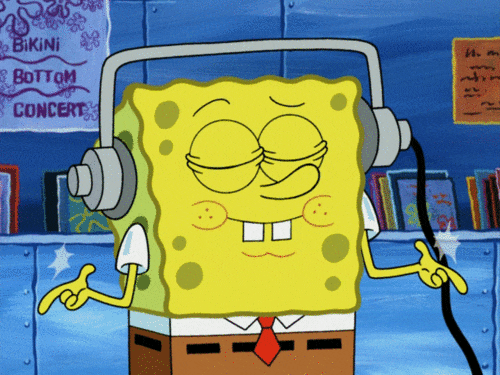When people are stressed they are less likely to listen to music, as they may see it as unproductive or a waste of time. However, the stress relieving qualities that music posses make it beneficial to actively listen, because productivity increases tremendously when stress levels are low.
Music is helpful when using other stress relieving techniques such as meditation, visualization, and hypnosis.
Effects of Music on the Body:
- Music has a profound effect on both emotions and the body.
- Music can improve memory, focus, and attention
- Music helps with pain relief, reduces blood pressure, speeds up post-stroke recovery, helps prevent chronic headaches, boosts immunity and it has an anti-seizure effect
Effects of Music on the Brain:
Music stimulates many parts of the brain. It can be effective in altering moods and in therapy. Soothing music decreases stress. It can lower the levels of the stress hormone, cortisol. Preference is important, however, if music such as smooth jazz seems annoying to a person, it is not good to listen to when trying to relax!
Research has shown that music generally improves mood. Also, rhythmic drumming and chanting have been used to create a trance-like state of altered consciousness. Om-harmonics meditation music helps to quickly create a tranquil, meditative state.
Studies have also shown that music, especially lyrical music, can lessen depression and anxiety along with stress. Non lyrical music may provide an overall sense of well-being. Some studies have found that music therapy can lower heart rate, blood pressure, and breathing rate.
Outcomes of Different types of Music
- Fast music can help with concentration, which is why many choose to listen while working out.
- Upbeat music is related to creating a more optimistic outlook on life.
- Songs with a slower tempo can create calmness and clarity in the mind, and even relax muscles.
Playing a musical instrument can switch off the stress response. Because of this, physical and emotional health is improved. When the senses detect a possible threat, it causes certain genes within the cells to switch on, directing them to produce the chemicals that are associated with the stress response. Playing music sets off an opposite chain reaction that switches these genes back to normal.
It’s long been said that playing the ukulele is great for stress relief, as you can simply concentrate and be in the moment rather than thinking about the struggles of the day. Often when singing, whistling, and playing instruments (the best being: the ukulele), one feels better, more calm, and more relaxed, than before, therefore relieving stress.
So, if you've been feeling stressed, sad, bored, etc., it might be time to go buy a ukulele. They are one of the easiest instruments to play, and are surly one of the most beautiful to listen to. Learning just the four main chords can give you a sense of accomplishment, encourage positive thinking, do great things for the mind and body, and give you something to show off to your friends!
So what are you waiting for? Go out and get one! But wait... Share this article first!

































